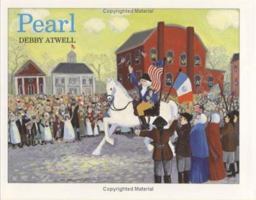The Thanksgiving Door
Select Format
Select Condition 
Based on Your Recent Browsing
Book Overview
Customer Reviews
Rated 5 starsIn everything ... give thanks!
Our family of seven HIGHLY recommends this truly wonderful book. If you've ever burned dinner, or any part of a meal, you will smile (or maybe cry) as you read. Ann burns the turkey dinner and is glum. Ed recommends they try the new restaurant. The family operating the restaurant thought they were closed when the elderly couple enters. Everyone gets more than they expect. The final outcome? All things work together for good!...
0Report
Rated 5 starsOpening hearts and home on Thanksgiving.
Ann and Ed, an elderly couple, are alone on Thanksgiving, and Ann burns the dinner. Depressed, Ann goes off to iron, but Ed encourages her to go with him to a cafe. They walk in to find a large table festively decorated for Thanksgiving. From the kitchen, members of the immigrant family who own the cafe are peering out, wondering who left the front door open when the restaurant was closed, and what to do about these strangers...
0Report
Rated 5 starsA happy story in a busy world
I purchased this book to read to my 2 neices ages 5 and 3. The 5 year old was able to read some of the words to and with me. They both enjoyed the story and ask their mother to read it to them on a regular basis. The story is a wonderful tale of sharing of company and culture with an older couple who would other wise had spent Thanksgiving alone without a proper dinner.
0Report
Rated 5 starsTrue Thanksgiving and sharing spirit. TERRIFIC find! Ukrainian/Russian heritage, too!
What an enjoyable book! Very different storyline than most Thanksgiving Day books, but the spirit of the holiday is wonderfully, accurately captured and very well conveyed. The writing style also is a bit unusual but fits the story. Our 5-year old really enjoyed the book (as did we!) and right away noticed the Ukrainian heritage (dancing) and names. TERRIFIC BOOK!
0Report
Rated 5 starsDeftly written and colorfully illustrated
Deftly written and colorfully illustrated by Debby Atwell, The Thanksgiving Door is the entertaining story of a family preparing their Thanksgiving celebration in the restaurant they own and run. When suddenly two strangers walk through the door unwittingly left open, the children try to scare away the undesired customers. But Grandmother in her wisdom invites them as guests and the children learn some sage lessons about what...
0Report


























